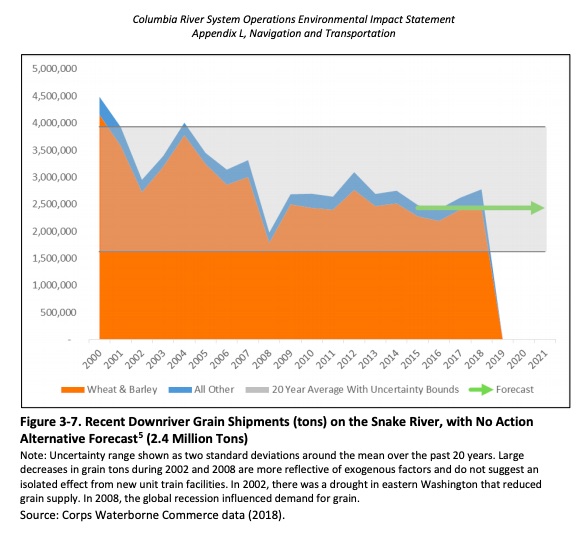forum
library
tutorial
contact

Longtime Farmer Selected to Serve
on Lewiston's Port Commission
by Elaine Williams
Lewiston Tribune, January 11, 2022
|
the film forum library tutorial contact |

|
Longtime Farmer Selected to Serve
by Elaine Williams
|
Joe Anderson replaces Mary Hasenoehrl
 An open seat on the Port of Lewiston's three-member commission has been filled by a semiretired farmer who supports maintaining the four lower Snake River dams.
An open seat on the Port of Lewiston's three-member commission has been filled by a semiretired farmer who supports maintaining the four lower Snake River dams.
Joe Anderson, 63, of Lewiston, was selected Monday in a vote by Lewiston Port commissioners Mike Thomason and Jerry Klemm. Anderson was the only person to submit a letter of interest for the seat.
Thomason and Klemm were responsible for deciding who would succeed Mary Hasenoehrl after she resigned from her seat Dec. 31, as part of her transition to retirement.
Like Hasenoehrl, Anderson will represent the port on the City of Lewiston's Urban Renewal Agency.
Before the vote, Anderson was praised by Scott Zuger, general manager of the Lewis Clark Terminal, one of the largest grain storage facilities in the region.
"(Anderson) is a strong advocate for this region," Zuger said. "He's very well-versed in the issues and the strengths of our area. He would be a definite bonus on the commission."
Anderson will hold the position until Dec. 31. The seat will be on the ballot this year in Nez Perce County and Anderson said he intends to run.
The winner of that race will be on the commission until Dec. 31, 2024, when Hasenoehrl's term would have ended.
Anderson's decision to join the port commission follows decades of farming. He raises wheat and canola with his brother on a farm in the Genesee area that has been in his family since 1902 when his great grandfather settled there.
Barging grain on the Snake and Columbia rivers provides a reliable form of transportation that helps keep farmers in this area competitive, Anderson said.
"There's no fuzzy line on that one," said Anderson, who serves on Idaho's Wheat Commission. Support to breach the four lower Snake River dams has been growing, with Idaho Republican U.S. Rep. Mike Simpson as well as a number of tribes and environmental groups blaming them for declines in wild salmon and steelhead runs.
Before slack water, grain left the region on a network of rail tracks that reached every small rural town, Anderson said. Large portions of the system have been mothballed or removed.
And even when the lines were more comprehensive, Anderson said, they weren't always efficient. Area co-op managers, he said, sometimes had challenges getting rail cars.
Besides advocating for farmers, Anderson said, he will help the port pursue activities that strengthen the region's economy such as its development of a fiber optic network for telecommunications.
Those efforts, he said, frequently use tax dollars Nez Perce County property owners pay for the port, which he favors continuing because of the benefits they provide.
This year, he said, his household only paid $20, barely enough to buy lunch at a Lewiston restaurant.
But when everyone's share is added together it equals about $400,000 annually, giving the port a source of matching money for federal grants that bring millions of dollars into the region, Anderson said.
learn more on topics covered in the film
see the video
read the script
learn the songs
discussion forum
